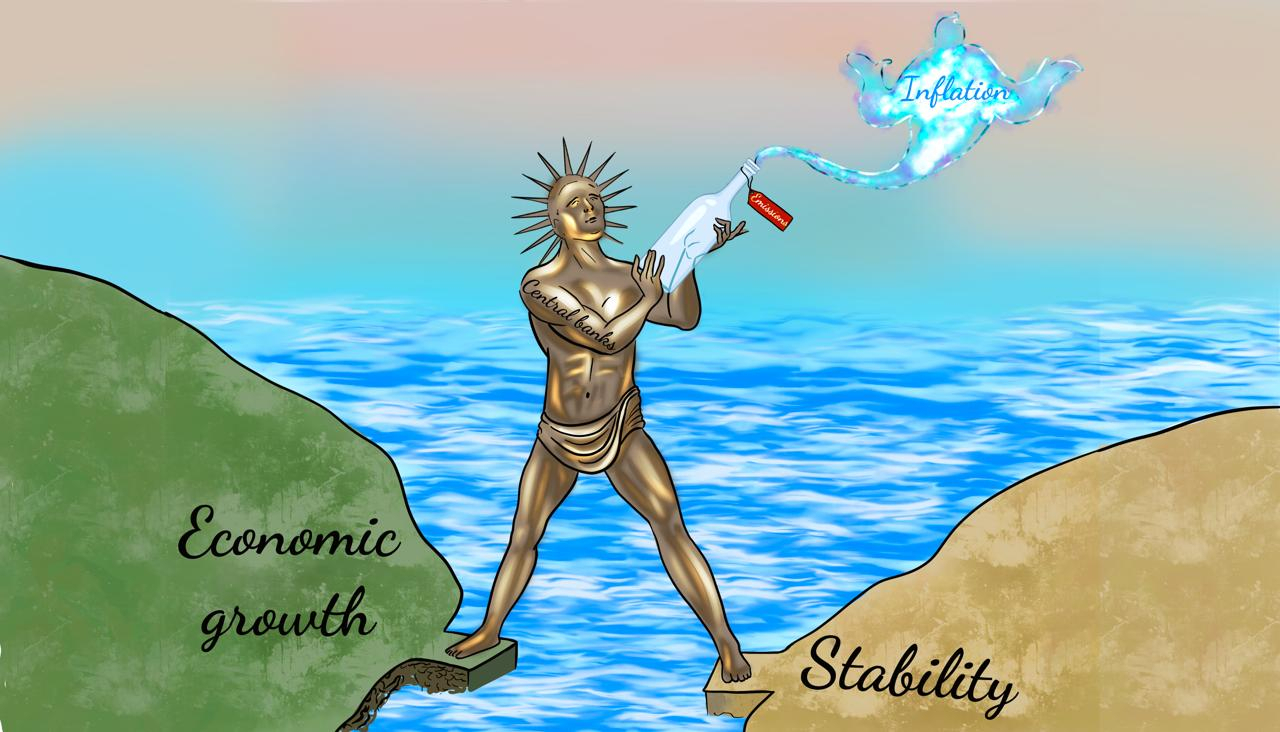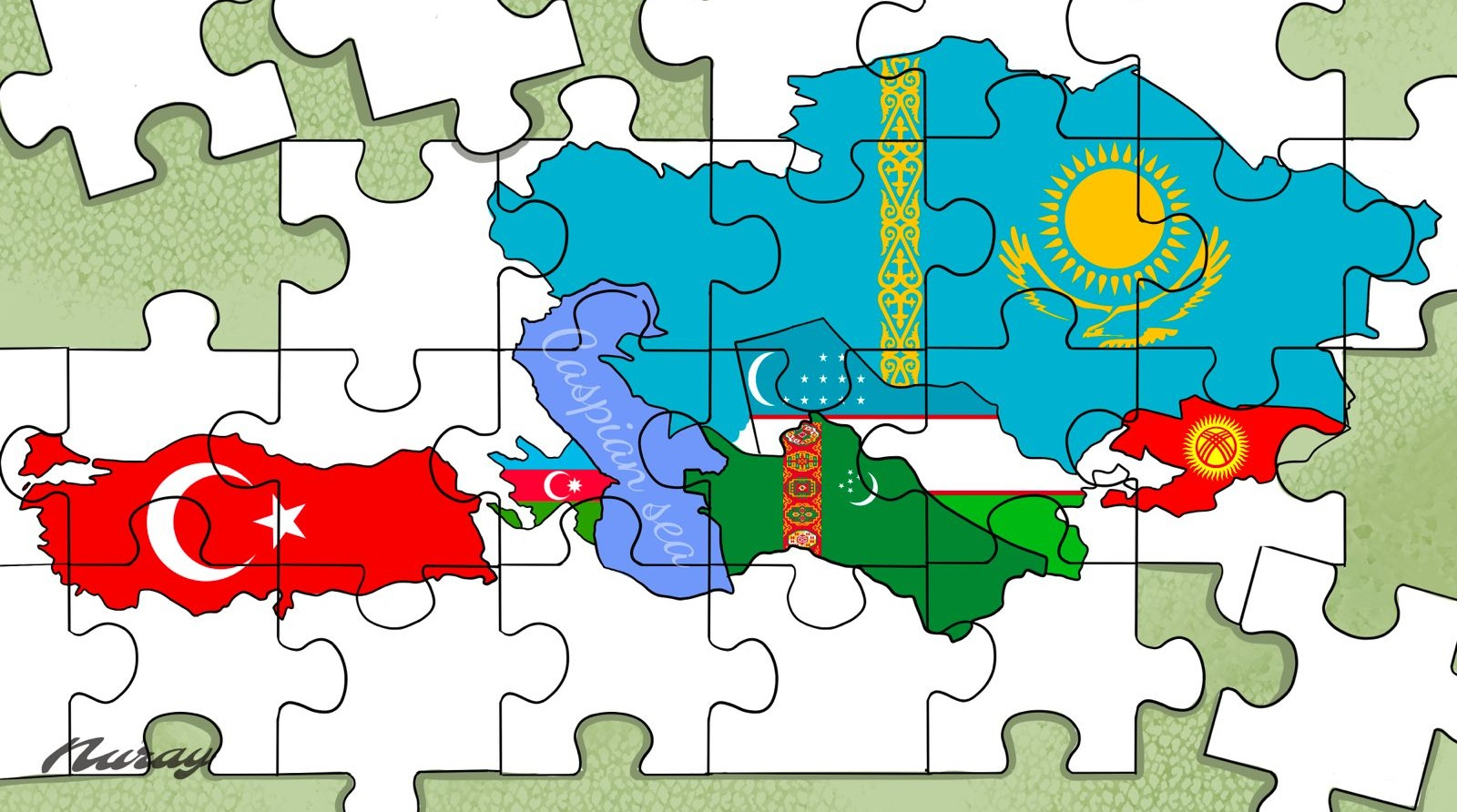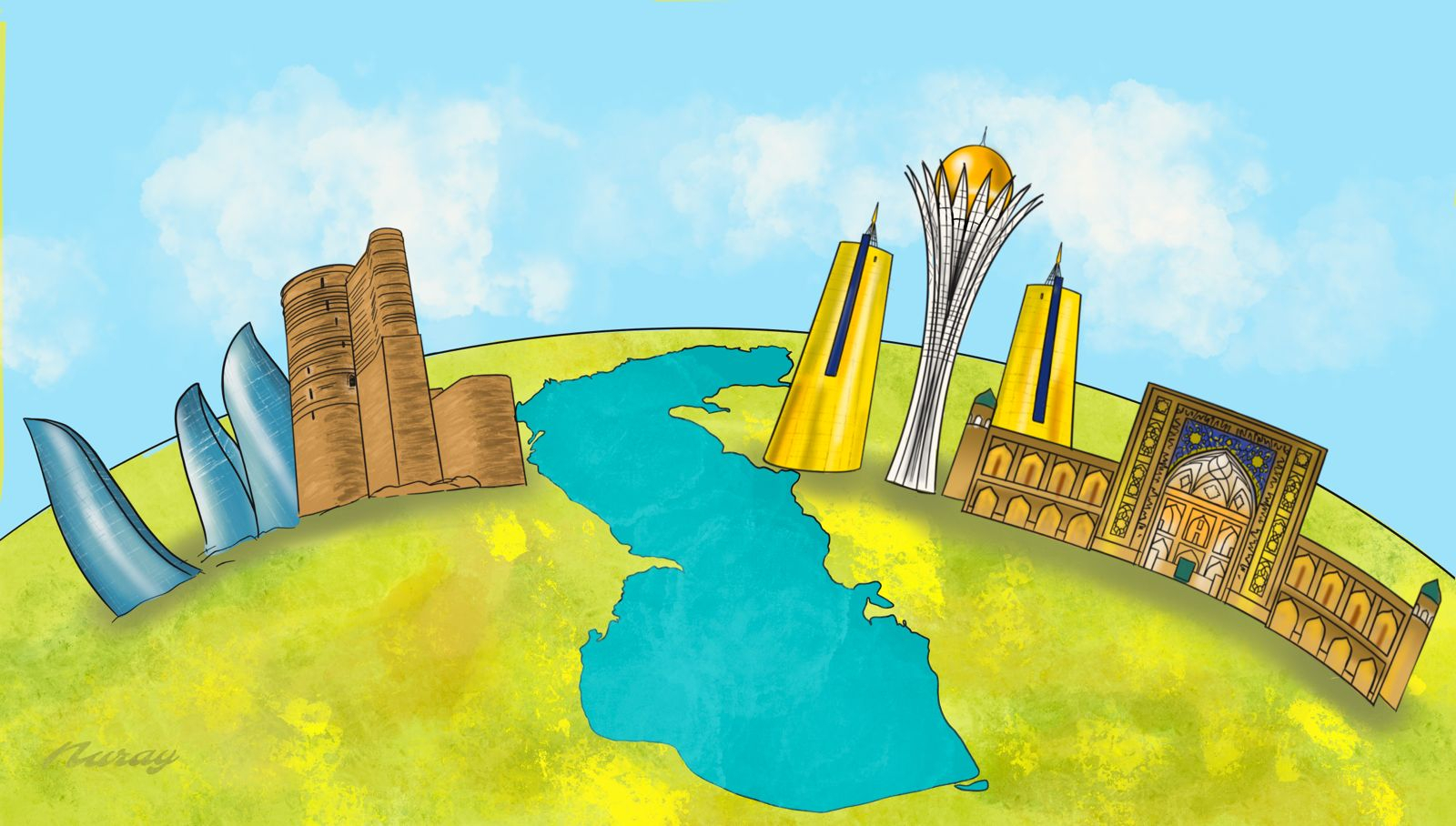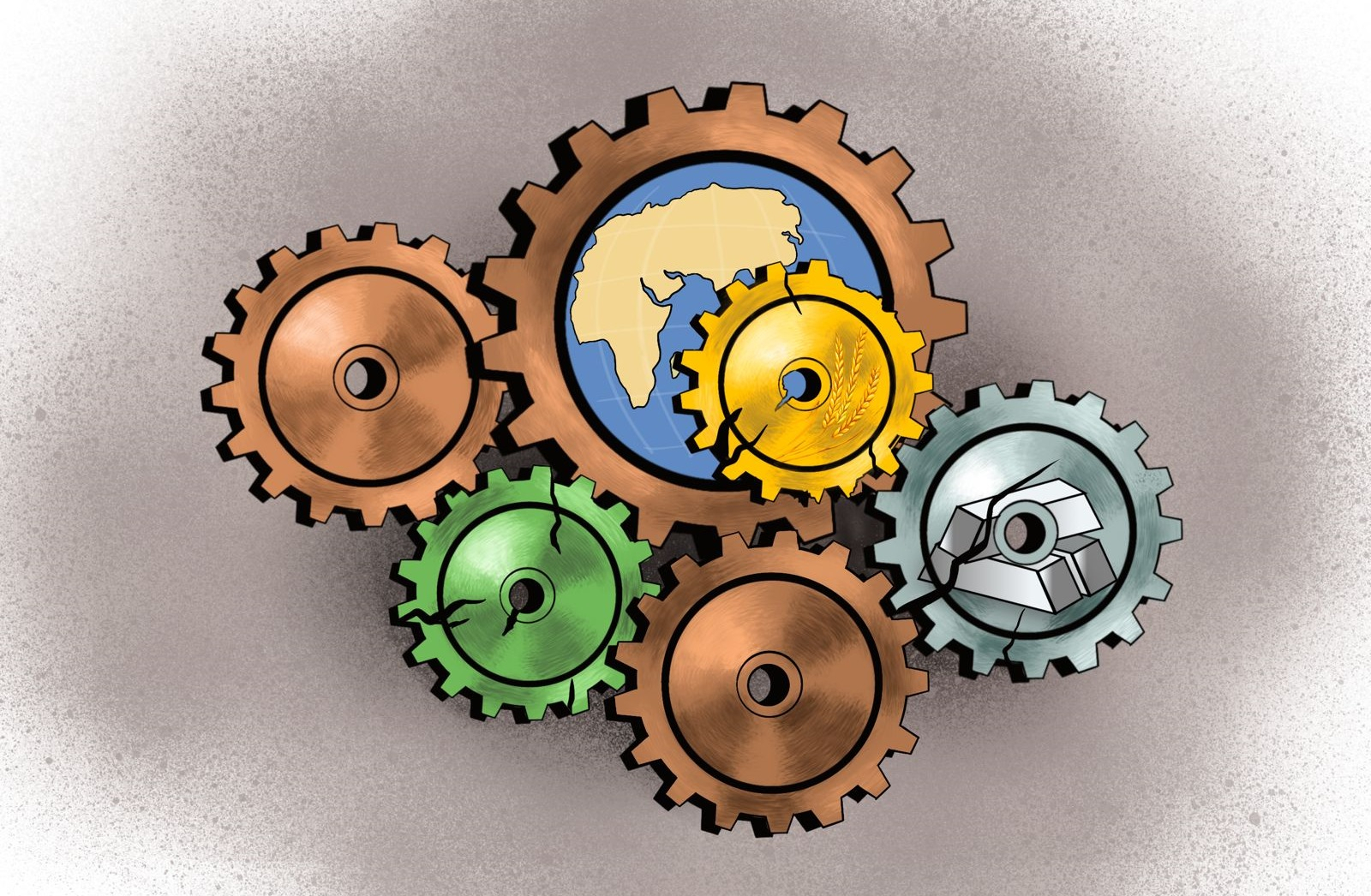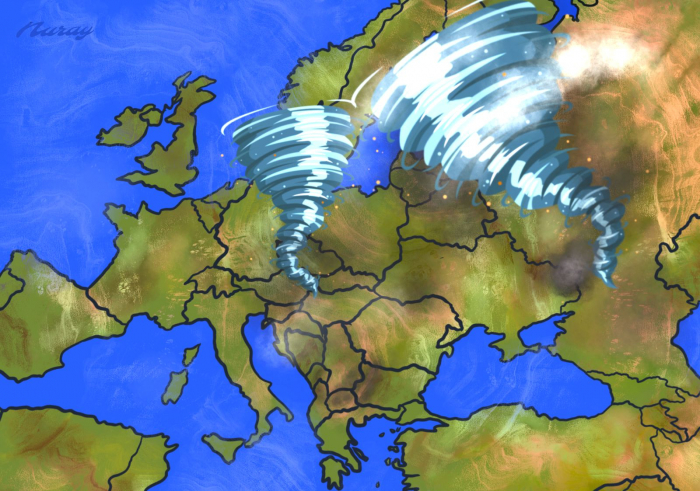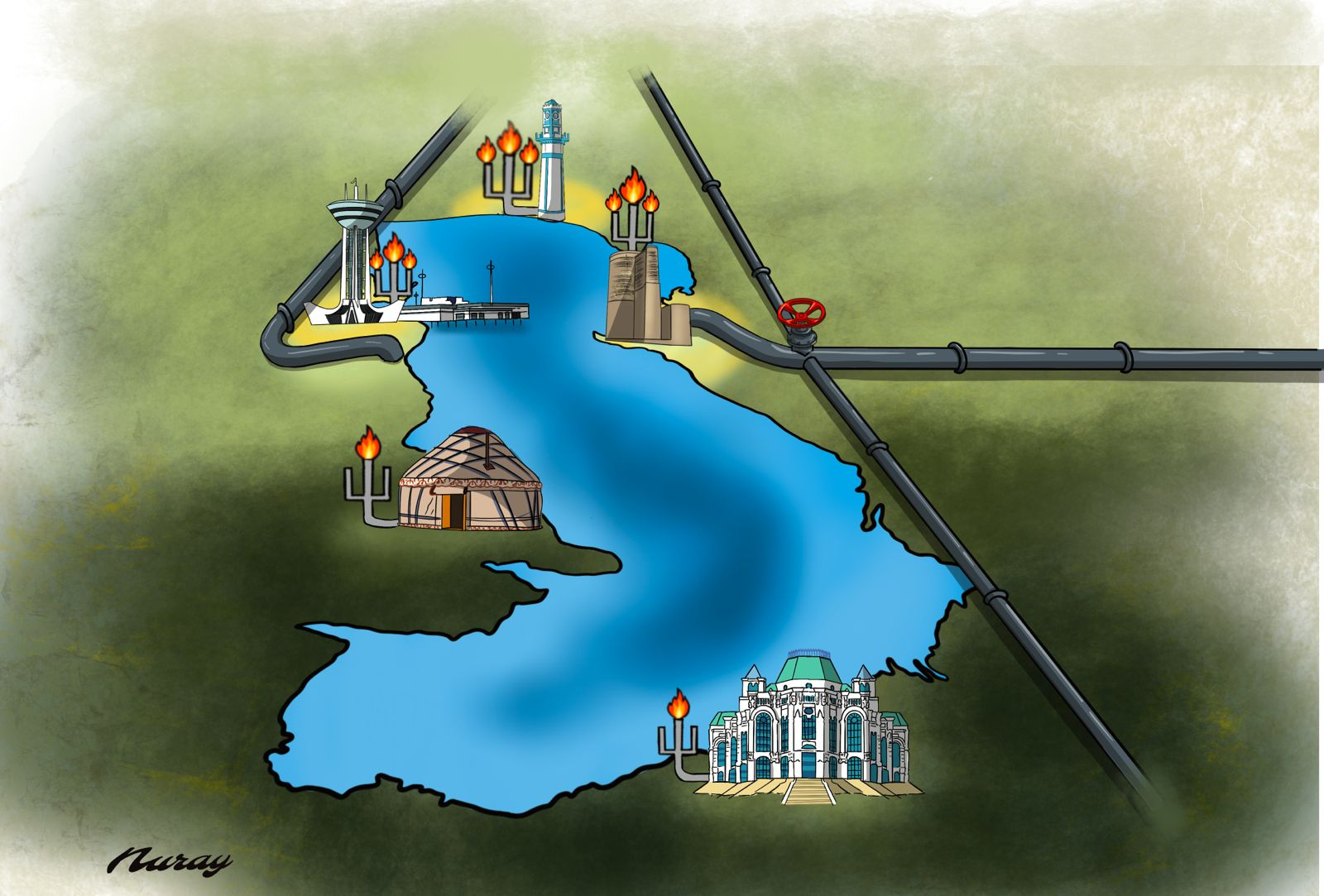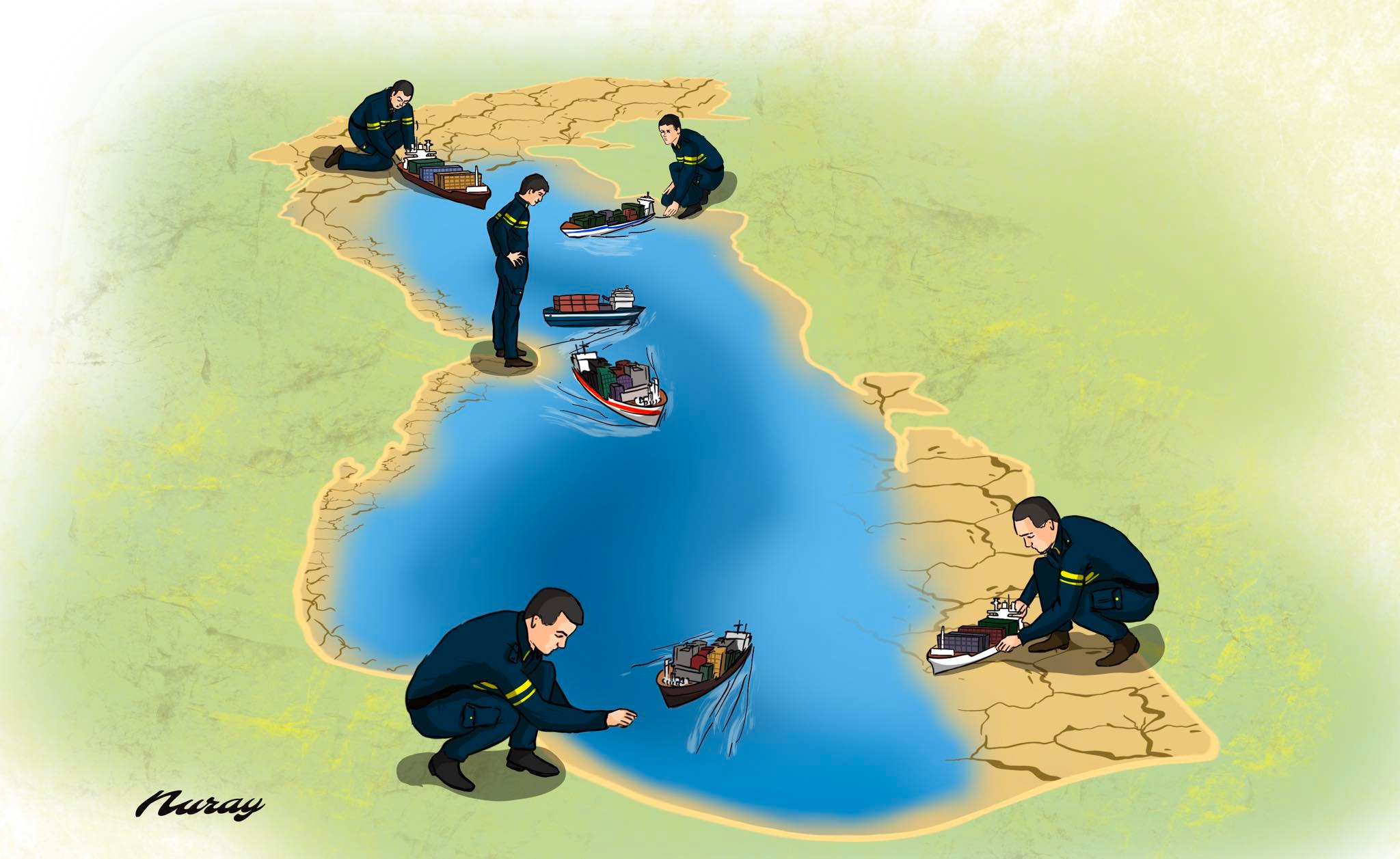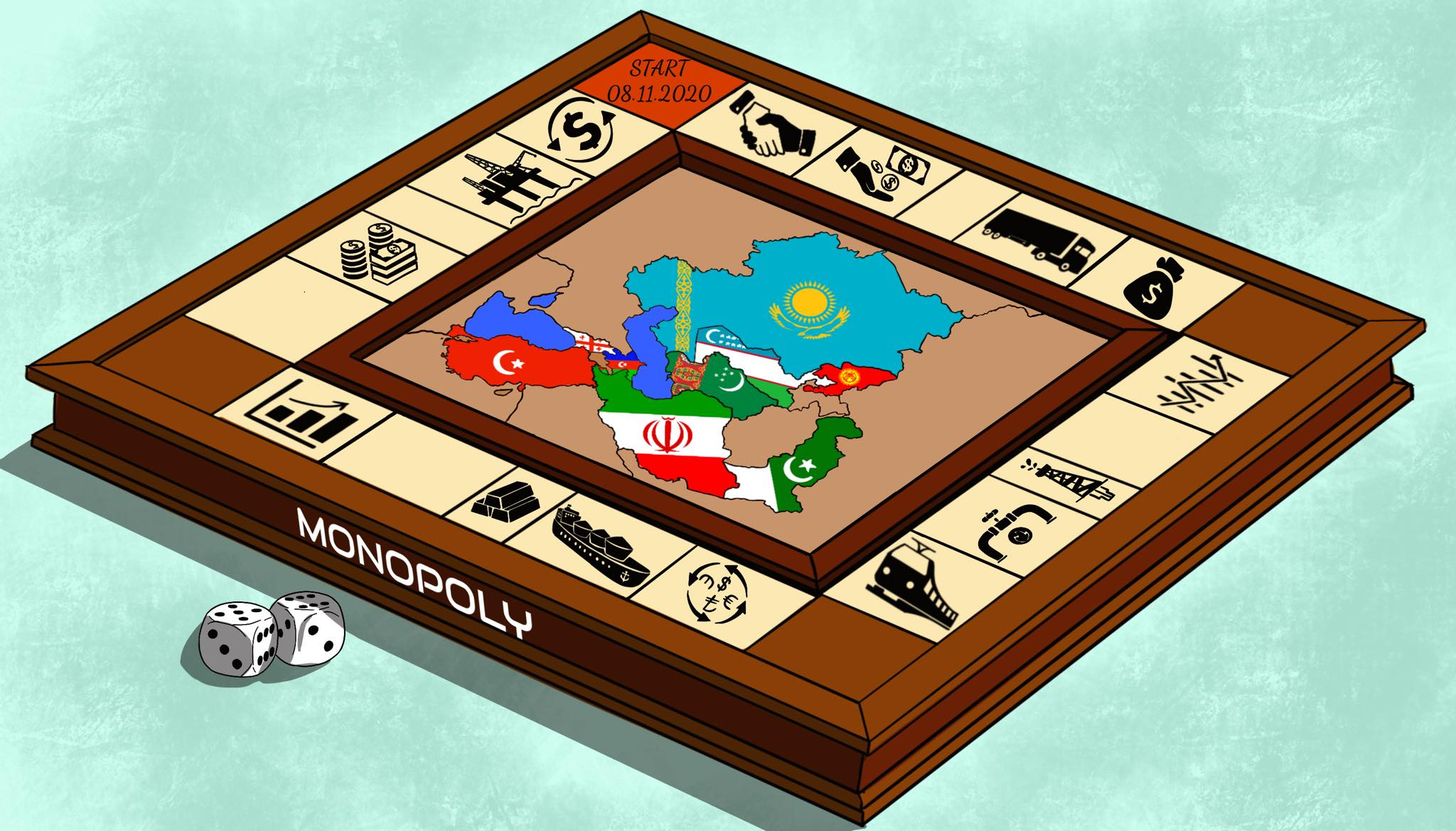
| The Analytical Group of AzVision.az |
Buenos dias pora! | Long Read// How the role of the diasporas is changing worldwide and how we can benefit from it |
|
T
he term diaspora in the modern world no longer describes merely a
community of representatives of a nation living outside its historical
homeland. The concept has long since changed its definition found in the Torah.
The current interpretation includes an actor in international relations, a
mechanism of political influence, ‘soft power’, and economic potential. The
process of shaping a successful diaspora goes hand in hand with the development
of states, having a reciprocal effect, which means the historical homeland and
diaspora support each other’s enhancement. The concept of a diaspora entered the political and social sciences as a
term in the 1950s and 60s in the USA. The word was coined from the
translation of the ancient Jewish word of galut into Greek. Diaspora had a negative meaning in the biblical context: following this logic, God
punished the Jews for sinning and scattered them around the world. Today, the diaspora has not only ceased being a punishment but has also grown to be
considered God's greatest blessing. The eminent English historian and philosopher Arnold J. Toynbee described
the Jewish diaspora as the future of the world order in his monumental A
Study of History (1972), saying the importance of social structures
associated with ethnic groups was increasing under globalization.
The number of migrants has tripled across the globe in the last
half a century. There were 75.5 million migrants on the planet in the 1960s,
whereas the number reached 176.6 million in 2000 and 213.9 million in
2009. The UN reports that one in every 35 persons worldwide and one in 10 in
developed countries is an international migrant. |
||
 |
||
| Growth of the number of migrants and ratio to the total world population |
Such an acute increase in the number of migrants goes hand in hand
with their organization, resulting in opportunities to
influence the most diverse areas of life in their respective countries. Children of Two Homes The classical diaspora was a historic necessity. For instance, the
migration of Jews from Judea or Africans from the ‘Black Continent’ to foreign
lands was not a purposeful migration. Rogers Brubaker, American
sociologist, and diaspora researcher calls these forced diasporas that have
taken shape due to states collapsing, etc. ‘cataclysmic diasporas’.
Unlike labour diasporas, cataclysmic diasporas do not spread over large areas,
choosing to live more compactly. Professor Robin Cohen, the British sociologist, divides diasporas into four
categories according to the reason for their formation in his Global
Diasporas: An Introduction (1997): ·
Victim diasporas (Jewish, African,
Armenian, Palestinian) ·
Labour diasporas (Indian) ·
Trade diasporas (Chinese) ·
Imperial diasporas (English, French,
Spanish, Portuguese)
The purposeful migration as of the 19th century (moving to
the ‘new world’ to build a new life) started a fundamentally different wave
of diasporas. The Irish, Italian, German, Russian, Polish, Scottish, and
other diasporas are the product of that wave. |
|
 |
||
| An essentially new wave of diaspora shaping began towards late 20th century |
The diaspora process took on a completely different essence as several
countries, especially the USA, introduced major changes to their migration
legislation in the late 20th century. Even those nations, who
did not historically shape traditional diasporas, now had a chance to build a
‘second homeland’. The Chinese and Indians took advantage of this
opportunity the most. We must include a vital nuance: Migration does not automatically
create diaspora. Becoming a diaspora requires preserving national identity
and fulfilling a number of other conditions. There is a delicate zone between the
states of ‘not yet a diaspora’ and ‘no longer a diaspora, which
one must accommodate and get comfortable with.
Zaur Aliyev, Ph.D. in history and expert on diaspora issues, says it is important to distinguish
between a community and a diaspora. There are Turkish communities in
different countries, such as Holland and Australia, who live their lives, and celebrate holidays…. But that does not necessarily make them a diaspora. The diasporic activity requires legal organization and information resources. |
|
| Zaur Aliyev: ‘We must raise the matter of dual citizenship for the diaspora’ |
Another important condition is maintaining ties with the historical
homeland, otherwise, the diaspora will shortly shed its identity and dissolve
into the local community. As the ties are maintained and strengthened, the
diaspora gradually grows into a new political brand in their respective
countries. Guyana comes in first (36.4%), Bosnia and Herzegovina second (34%), Albania
third (30.7%), Syria fourth (29.8%) and Jamaica brings up the
rear (28.6%) in the top five countries, where the majority of population lives
abroad. However, no one has heard of a powerful Guyanese, Syrian, or
Jamaican diaspora. So, it is not about the numbers. So, what is it about?
What does building a strong diaspora require? What models, and mechanisms must be
applied? Answering these questions entails addressing the experiences of nations,
that have already managed to generate a strong diaspora in our modern world. Huáqiáo
This is the term, coined to describe the Chinese living outside China.
However, it would be incorrect to merely translate it as ‘migrant’.
According to the Chinese mentality, citizenship is not the most important factor.
Lineage matters more. If your great-grandfather lived in China, it makes you a
Chinese as well, which is why China sees migrants as their own citizens living
abroad. They have managed to pass on their language, culture, and customs from
generation to generation and maintain ties with each other and their
historical homeland. |
|
 |
||
| China sends the most students globally to study abroad |
There are many Chinese, who have authored great achievements in various fields and countries. Yuan Zheng (Eric Yuan), the founder of Zoom, Jerry Yang, the co-founder of Yahoo, Yang Chen-Ning, the Nobel prize winner in physics, Steven Chu, the 12th US Secretary of State and Lee Kuan Yew, the legendary Singaporean Prime Minister, are all representatives of the Chinese diaspora. One of the reasons behind China’s ‘economic miracle’ lies in its diaspora of 50 million people. Most of them live in the ASEAN countries. The funding they have been allocating in their historical homeland has increased the investments by ASEAN countries in China (around 80 billion USD per year) which is two and a half times bigger than China’s investments in those countries (30 billion).
Wang Haoqiang, director of the Confucius Institute in Azerbaijan, notes in his article for AzVision.az, that the Chinese diaspora has boosted the development in China in mainly four aspects: • They promote Chinese culture abroad. • They contribute to trade and investments. • They actively participate in developing education.
• In terms of politics, they are promoters of policy. The expert believes there are 5 factors behind the success of the
Chinese diaspora: excellent education, diligence, good upbringing, innovative
spirit, and kindness. These factors come together, building a foundation
for the Chinese to succeed abroad. The numbers also confirm his words: China is today the country that
sends the most students to the US (330 thousand a year). They mainly
major in disciplines, such as mathematics, medicine, and engineering. More
than half of Chinese immigrants in the USA have a college degree. 32 Million Ambassadors In the early 1990s, around a third of software engineers in Silicon Valley were Indians. Suhas Patil (Cirrus Logic), Vinod Khosla (Sun Microsystems), Sabeer Bhatia (Hotmail), and others were the ones, who played a key role in the tech revolution in the USA. The model was a completely different one this time: The Bangalore Phenomenon. |
|
-1690552178.jpg) |
||
| Bangalore - A city on the rise thanks to the diaspora |
Bangalore, in the Indian state of Karnataka, was a city with a population of 10 million in the ‘90s. The city began to transform rapidly after establishing ties with California’s Silicon Valley. Bangalore is currently considered the most dynamically developing city in the world with 1.5 million people employed in hi-tech, home to headquarters of over 700 major local and global companies. Karnataka’s hi-tech exports are worth 45 billion USD a year. This is one of the greatest illustrations of a diaspora attracting investments into its homeland.
Dr. Aslam Khan, Adjunct Professor of Political Science at Mahatma
Gandhi Central University in India, mentioned during his interview to AzVision that the Indian diaspora
has transformed into one of the most important discourses in global affairs, as
it Is not only the largest diaspora in the world but one that has proven to be
a great political and economic force around the world. ‘The
US is home to the largest Indian Diaspora (4.5 million), followed by Saudi
Arabia (4.1 million) out of 32 million Indians living outside their homeland. The World Bank Report reads that India
receives around USD 100 billion yearly in remittances. The country received an
annual FDI of $84,835 million in the financial year 2021-22. The top investing
countries are Singapore, Mauritius, the UAE, the USA, the Netherlands, and
Japan, which have a great Indian presence’, Aslam Khan explained. Piyush
Goyal,
Minister of Commerce and Industry, called on the Indian Diaspora to consolidate
efforts to grow India into the third largest economy globally and termed Indian
citizens living overseas the Ambassadors of India. The
Indian diaspora is also a shining illustration of economic power leading to
political influence. The heads of state in countries, such as Surinam,
Trinidad and Tobago, Guyana, Fiji, and Mauritius are of Indian origin.
British Indians are the largest ethnic minority in the UK and are employed in
most top fields. Rishi Sunak’s rise to the post of Prime Minister
in Great Britain is a unique historical event. 15
MPs of Indian origin currently
serve in the British Parliament. These are Gagan Mohindra, Claire
Coutinho, Nadia Whittome, Navendu Mishra, Priti Patel, Alok Sharma, Sanjoy Sen, and others.
In Canada, Harjit Sajjan serves as the Minister of
International Development, Navdeep Bains was the Minister of Innovation, Science,
and Industry, Bardish Chagger was the Minister of Diversity, Inclusion, and
Youth, and Anita Anand is the current Minister of National Defence. |
|
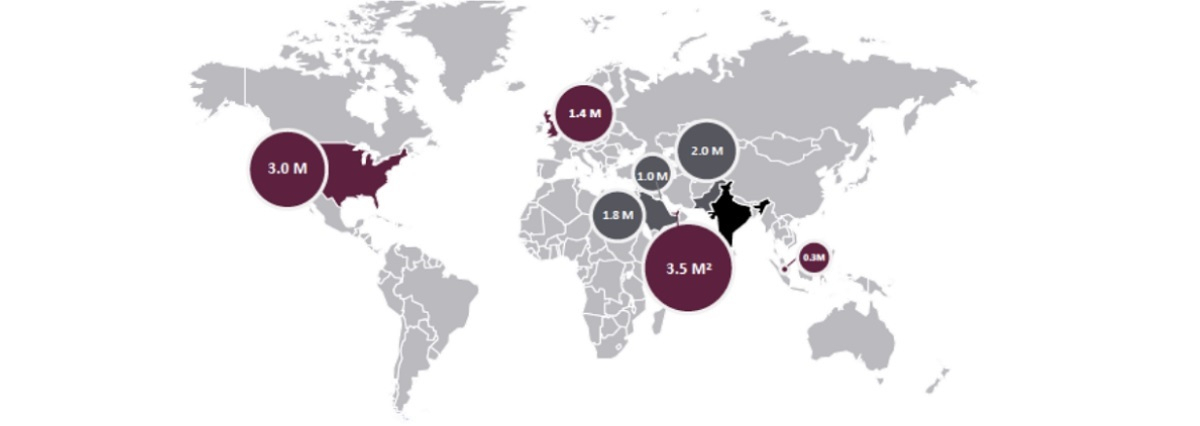 |
||
| Countries with the largest widespread Indian diaspora |
Both political parties in the USA, the Republicans and
Democrats, consider the Indian Diaspora a major force. Joe Biden’s appointment
of Kamala Harris as his vice president is a clear pointer to the fact.
Some Indian Americans, such as Ro Khanna, Nikki Haley, and Vivek Ramaswamy,
are currently considered the highlights of the upcoming 2024 presidential
elections in the US. The presence of
the Indian Diaspora in the Middle East has had a profound impact on the
relations between Delhi and regional countries. The Gulf countries are India’s
largest trading partners. India’s
experience is one of the great illustrations to the wonders a skilled
diaspora can create in the contemporary world.
‘This highlights the fact that diaspora approaches have completely shifted and the importance of establishing ties with them and building new platforms for compatriots abroad to do more useful work for their homeland’, the head of department at the State Committee emphasized. Everything
for the Motherland A
diaspora aiding their homeland is not indicative of China and India only. The
diaspora of 32 million in the USA has had a great influence on Ireland’s
economic growth. The Irish government launched a special program to turn the
outflow of human capital (brain drain) into profit (brain gain). Yahya
Babanli, Ph.D. in history and expert on diaspora issues, believes diaspora makes up a single organism with its nation. With a right approach
in ideology and strategy towards this body, it can easily become the mediating
bridge between two countries. It will be a participating actor in their
respective countries, building ties with their homeland and representing it.
‘When we
realize that the modern Chinese, Polish, and even our brotherly nations Kazakhs
and Kyrgyz diasporas are also investors, we will see just how much ground we
have lost. The Kyrgyz government organized a huge exhibition-meeting with
Kyrgyz businesspeople and their partners in Russia in 2009, thus encouraging
investment into Kyrgyzstan. Kazakhstan’s state program for 2005 included the
Ol-Orman project, which focused on returns and investments. The Azerbaijani
diaspora has been growing, but we have yet to see economic efficiency’, Babanli
noted. |
|
| Yahya Babanli: ‘Diaspora and the people are a single organism’ |
Capital moves
very cautiously. Investing in a country requires certain criteria, trust, and
confidence first and foremost. So, who can believe and trust a country the
most? Its children! We have been seeing this come to life in the Turkish
example. Despite the anti-Turkish propaganda in the West, businesspeople of
Turkish origin invest heavily in the country. But, of course,
the diaspora should not be only focused on their historical homeland. They must
absolutely play an active role in the socio-economic and socio-political lives
of their respective communities, and try to win the respect, trust, and
confidence of the local people. The diasporas start inspiring associations with
certain fields after some time, as you would think of finance when hearing
about Jews or hi-tech when Indians are mentioned…
Azerbaijani
Diaspora: at the Lookout for a Model There is a
substantial Turkish diaspora in Germany today. They have made significant
headway in several fields but remain underrepresented in Parliament. What is
the reason behind this?
‘They must
still go through the stage, which the Greeks, Armenians, Jews, Indians already
have’, explains Teymur Atayev, political contributor and host of
‘Aspects of Foreign Affairs’ at CBC, in his interview to AzVision.az. ‘Time is an important criterion for a
diaspora. We have been noticing that the Turks are now perceived as their own.
We have been seeing more Turkish surnames, especially in journalism. |
|
| Teymur Atayev: ‘Diaspora building resembles climbing stairs. It is no easy feat.’ |
The Turks
started moving to Western countries in the 1960s, whereas the Azerbaijanis
began towards the late 90s. The Jews were mainly the first ones to leave
Azerbaijan. They can now be considered our diaspora and lobby to a certain
extent. This factor,
close ties with brotherly diasporas, can support the rapid development of the
Azerbaijani diaspora. It takes decades for a diaspora to grow, consolidate and
influence processes. Mehmet Yuce, Professor at Aegean University, and
expert on international issues, proposes an interesting idea to reduce this time: Turkic peoples
must consolidate their diaspora activities.
He says,
developing a mechanism of cooperation with the diasporas of the Turkic states
is key, especially the Turkish one. The ‘Turkic World Vision 2040` program has
put forward goodwill in this regard. |
|
| Mehmet Yuce: ‘We must necessarily take advantage of the intellectual opportunities the diaspora has to offer’ |
Supporting its
historical homeland, working for its growth, and representing its interests is
firstly a necessity for the diaspora itself because a diaspora stays in
shape to safeguard its identity and turns that ethnic identity into a
successful business card. The opposite of that is assimilation. The image of
the country it represents is the image of the diaspora itself. Therefore, the diaspora must spare no
efforts to build a good image of their homeland in the country they live in
and should accept it as an element of their own image. This is one of
the main denominators that unite the interests of the historical homeland and
the diaspora. It certainly would
not be efficient to employ the experience of a certain nation and a model
and follow it blindly. Everyone needs to find a way to suit their temper
and character. To summarize, we now know the ingredients that should be
included in the recipe for a successful Azerbaijani diaspora: · Educated
individuals, · Continues,
unbreakable ties with the homeland, · Active participation in the cultural, social, public, and political life of the country, · Sincerely serving the interests of both ‘houses’.
The
diaspora is the first, who needs to follow this recipe to be able to develop,
while still maintaining its identity. The homeland is certainly interested just
as much as the diaspora is, which is why it should spare no support for its
children abroad to polish this recipe. The result will not be long in coming. |
|









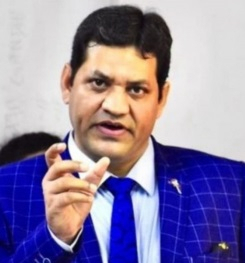
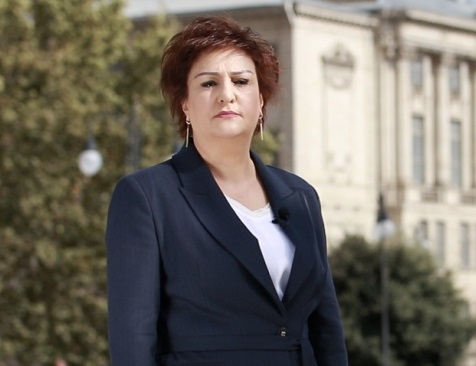
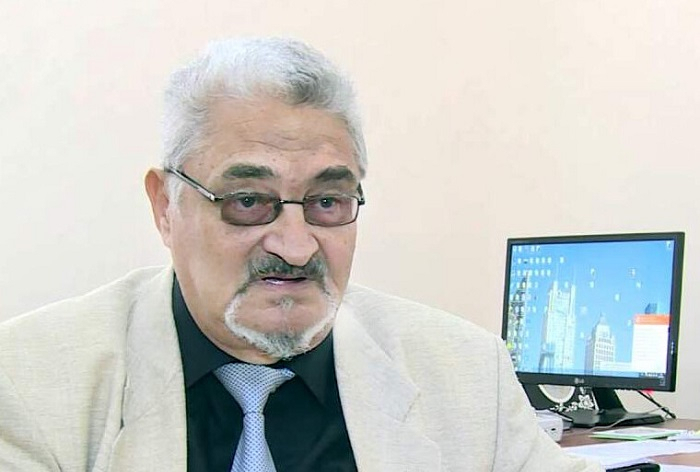 The best example
of this would be the American Jews. Moisei Bekker, Ph.D. in Political
Science,
The best example
of this would be the American Jews. Moisei Bekker, Ph.D. in Political
Science, 
-1728294271.jpg)

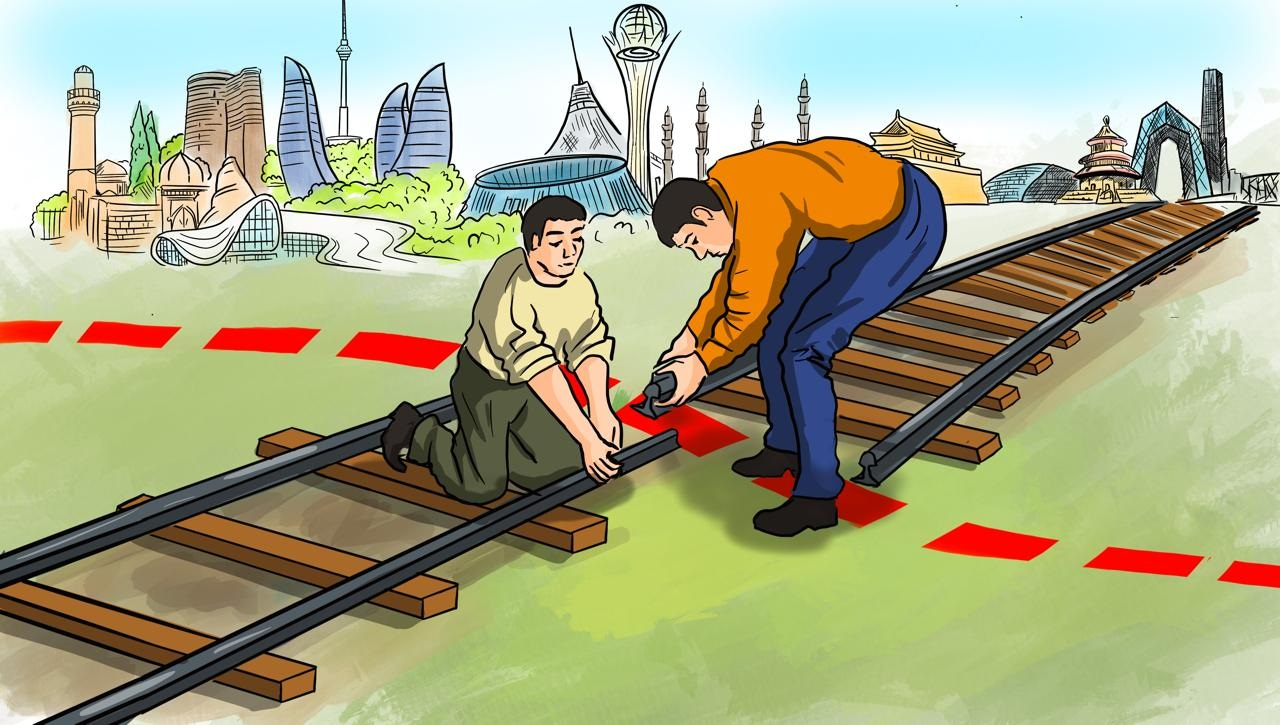

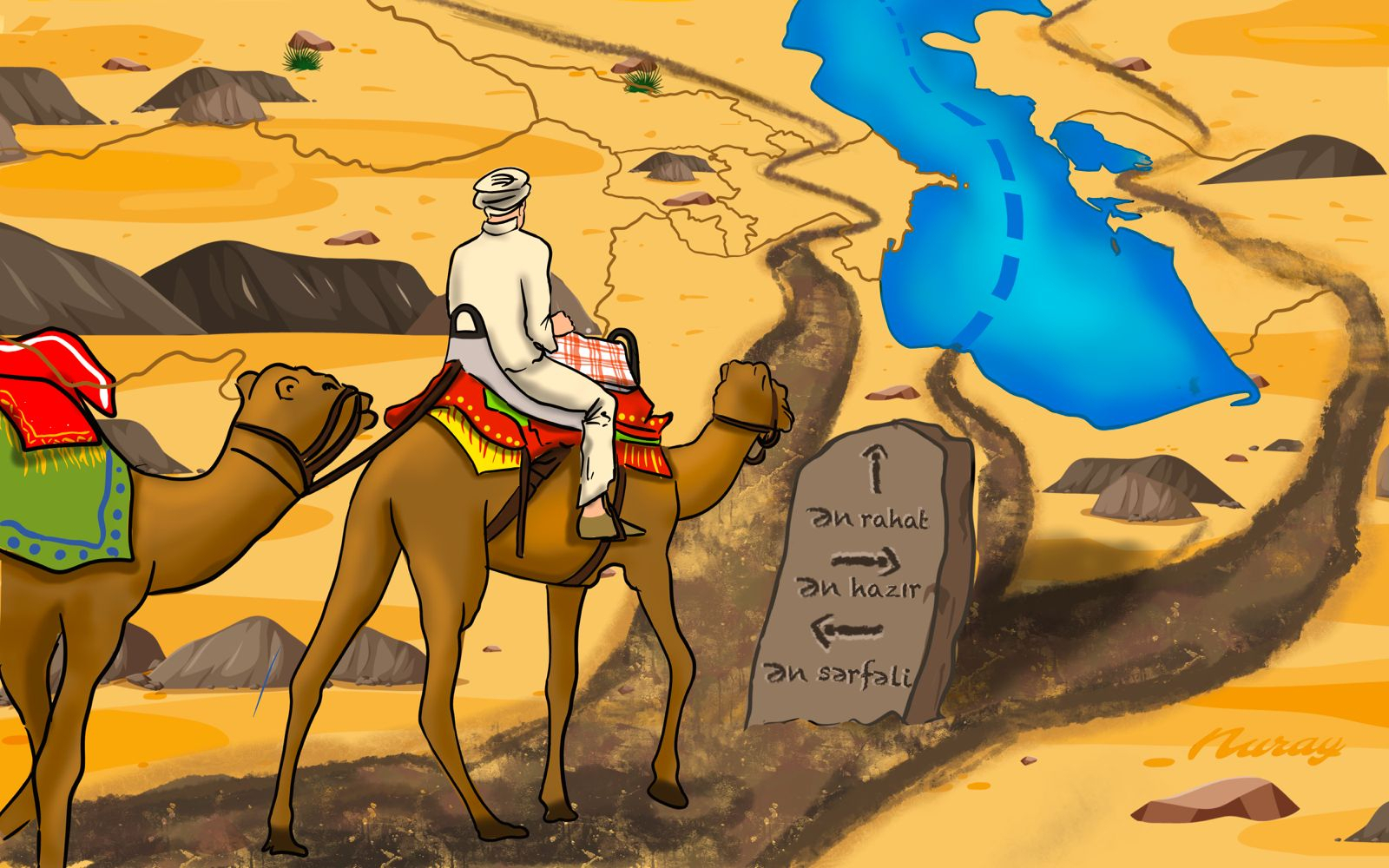
-1680010126.jpg)



